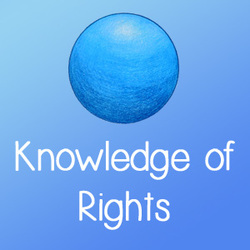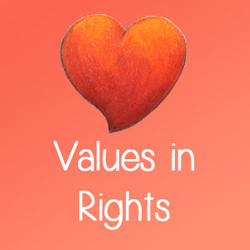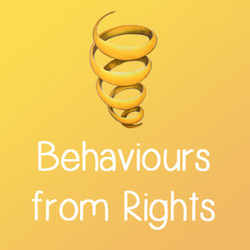|
|
“Enabling children to express themselves and have their views heard and respected in their homes, schools and communities from an early age will enhance their sense of belonging and their readiness to take on responsibility. The Convention on the Rights of the Child was created to protect [children], and our world, by recognizing that today’s children are tomorrow’s leaders. All of us must strive, in our personal, professional and public lives, to include children in shaping the future they are inheriting.” Thomas Hammarberg, Council of Europe’s Commissioner for Human Rights (N.D) |
A paradigm-shifting proposal to reform the current education system is offered to establish a global foundation of freedom, justice, and peace as proclaimed in the United Nations Charter in 1945. Based on the principles and provisions outlined in the UN Convention on the Rights of the Child, the purpose of education is suggested to empower children to become critically literate citizens so that they can shape a future that recognizes the inherent dignity and the equal and inalienable rights of all members of the human family. A comprehensive children's rights education curriculum and pedagogy that incorporates Montessori pedagogical methods and principles is presented that enables signatories to the Convention to fulfill the legal and moral obligations to "make the principles and provisions of the Convention widely known, by appropriate and active means, to adults and children alike" (Article, 42). The purpose of this integrated curriculum is to empower children with knowledge of their rights so that they can act as agents of change to uphold these rights for all children as they promote social progress and better standards of life in a larger freedom (UN Charter, 1945). This is achieved through:
|
To raise awareness, understanding and acceptance of children's rights standards and principles as outlined in the 1989 United Nations Convention on the Rights of the Child.
|
To develop a universal culture of children's rights where every child is aware of his or her own rights and responsibilities regarding the respect of the rights of others.
To promote the development of the child as a responsible member of a free, peaceful, pluralistic and inclusive society. To ensure equal opportunities for all children through access to quality children's rights education, without any discrimination. |
To pursue the effective realization of all children's rights as outlined in the 1989 United Nations Convention on the Rights of the Child.
To promote tolerance, non-discrimination and equality. To protect children's rights and fundamental freedoms. To contribute to the prevention of children's rights violations and abuses. To combat and eradicate all forms of discrimination, racism, stereotyping and incitement to hatred, and the harmful attitudes and prejudices that underlie them. |
Friedmann, L. (2013). Education for Peace: Empowering children to uphold liberty, equality, and dignity.
Abstract
Recent debate regarding what the purpose of education should be for the twenty-first century is challenging the economic and political agendas of a capitalistic society designed to produce conforming individuals. While there is some consensus that education should enable students to be global citizens with critical thinking skills, life long learning capacities, enhanced social awareness, and positive values and attitudes, there is no central set of principles or values for education to latch onto that fulfills the greater vision of establishing lasting global peace and security as outlined in the 1945 Charter of the United Nations. As a result, many attempts to reform education to bring it in line with emerging views regarding the purpose of education have failed. In order for education to be reformed so that it can fulfill the greater societal objective of securing international peace, it is proposed that the United Nations 1989 Convention on the Rights of the Child (herein the Convention) be adopted to provide the legal and moral framework for determining the purpose of education. The paper first examines the unique moral and legal duality of the Convention, and then it analyzes the Convention’s guiding principles regarding the purpose of education. It finally discusses their benefits to accomplishing sustainable education reform that fulfills the objective of empowering future generations to participate democratically in the pursuit of justice as they uphold the values of liberty, equality, and dignity for all members of the human family. In aligning education to the Convention’s principles of universality, indivisibility, and interdependence, the purpose of education is determined to enable the full development of critically literate, rights bearing citizens who, together, are empowered to uphold human rights and question the root causes of social injustice. This can only be accomplished when education systems are reformed to become truly democratic; where the worth of each child is recognized and respected; and where international, national, regional, and local stakeholders consort with citizens at all levels of society to fulfill the Convention’s legal and moral obligations for every child within their jurisdiction. In doing so, children are then given the voice they require to unite and “wage a global struggle” (Yousafzai, 2013) to construct and establish lasting world peace.
Click here to view the complete article.
Recent debate regarding what the purpose of education should be for the twenty-first century is challenging the economic and political agendas of a capitalistic society designed to produce conforming individuals. While there is some consensus that education should enable students to be global citizens with critical thinking skills, life long learning capacities, enhanced social awareness, and positive values and attitudes, there is no central set of principles or values for education to latch onto that fulfills the greater vision of establishing lasting global peace and security as outlined in the 1945 Charter of the United Nations. As a result, many attempts to reform education to bring it in line with emerging views regarding the purpose of education have failed. In order for education to be reformed so that it can fulfill the greater societal objective of securing international peace, it is proposed that the United Nations 1989 Convention on the Rights of the Child (herein the Convention) be adopted to provide the legal and moral framework for determining the purpose of education. The paper first examines the unique moral and legal duality of the Convention, and then it analyzes the Convention’s guiding principles regarding the purpose of education. It finally discusses their benefits to accomplishing sustainable education reform that fulfills the objective of empowering future generations to participate democratically in the pursuit of justice as they uphold the values of liberty, equality, and dignity for all members of the human family. In aligning education to the Convention’s principles of universality, indivisibility, and interdependence, the purpose of education is determined to enable the full development of critically literate, rights bearing citizens who, together, are empowered to uphold human rights and question the root causes of social injustice. This can only be accomplished when education systems are reformed to become truly democratic; where the worth of each child is recognized and respected; and where international, national, regional, and local stakeholders consort with citizens at all levels of society to fulfill the Convention’s legal and moral obligations for every child within their jurisdiction. In doing so, children are then given the voice they require to unite and “wage a global struggle” (Yousafzai, 2013) to construct and establish lasting world peace.
Click here to view the complete article.



